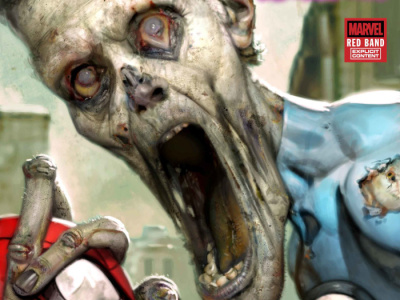A variety of sources have shed further light on LPC's filing for Chapter 11 Bankruptcy (see 'LPC Group Files Chapter 11'). On the plus side for LPC, Publisher's Weekly noted in its PW Newsline that CDS, the company that does both fulfillment and collections for LPC, will continue to ship books for the beleaguered distributor, quoting CDS's Gilbert Pearlman saying, 'We're going to do everything we can to help them.' Keeping CDS, which PW indicates (probably from the filing) is owed $316,000 by LPC, is essential for LPC's survival. Publishers also seem to be sticking by the company, for the most part (see 'Publishers React to LPC Bankruptcy').
In addition to revealing the amount that LPC owes CDS, PW's article also provided the amounts that LPC listed for its top three unsecured creditors, all publishers of graphic novels. The top unsecured creditor was Mixx Entertainment (Toykopop, which is owed $767,000), followed by Dark Horse ($661,000), and Marvel Entertainment ($618,000). LPC hasn't distributed Marvel books since last July, which indicates the lag time between when a book ships into the market and when the publisher actually gets paid (something that in this case might have been aggravated by the fact that Marvel took its book business to Diamond--see 'Diamond Moves Into Bookstore Distribution'). Finally PW also indicated that the Chicago-based American National Bank seized over $1 million in LPC cash receipts in the action that precipitated the crisis, a seizure that LPC is 'very confident' that it can reverse by legal action.
We wonder whether the recent change in LPC's business model (see 'LPC Outsources Logistics'), which may have moved inventory and receivables off its balance sheet, actually precipitated the banking crisis by reducing the assets on LPC's balance sheet below the level needed to collateralize the loan.
A source at Dark Horse told ICv2 that the situation was hardly as dire as some might imagine from reading the PW story--that the publisher was protected in several ways, first by its basic brokerage agreement and also by credit insurance. The funds seized by the bank belonged to the publishers less the commissions owed to LPC, which the bank presumably could attach. Dark Horse, Image, and Tokyopop are considering filing suit against the bank for 'illegal conversion,' but no final decision has been made on whether to sue or not. Of course other publishers may not have insurance and the smaller publishers may not be able to withstand interruptions in the cash flow. Now that LPC is in Chapter 11, the bankruptcy court will presumably pay the publishers for future sales out of the funds collected by CDS and passed through to LPC. Since the numbers in the PW article include receivables that have not yet been received by CDS and LPC, publishers should receive most if not all of the money due them, provided of course that CDS continues to ship and bill for books sold by LPC and LPC does not encounter further difficulty. The December payments to publishers, which would have been paid out of the money seized by the bank, remain in limbo pending a refinancing of LPC or possibly a lawsuit by the publishers to obtain their share of what was seized by the bank.







